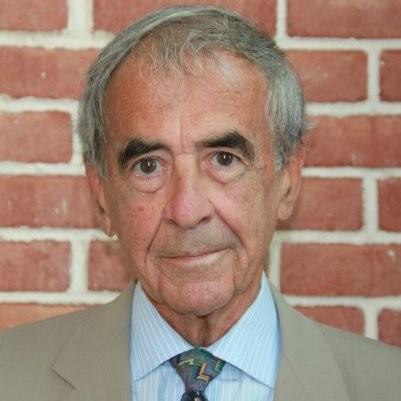-
Feb. 8, 2024
7:30 p.m. - 9 p.m.
+ Google CalendarCampus Center-Cole CinemaIntended AudienceFacultyStaffStudentsGeneral public

Our first installment of a new lecture series, Rising Tide: Distinguished Lecture in International Affairs
Simon Serfaty is a professor and eminent scholar (emeritus since 2020) in U.S. foreign policy at Old Dominion University (ODU) in Norfolk, Virginia. He also holds the Zbigniew Brzezinski Chair in Global Security and Geostrategy (emeritus) at the Center for Strategic & International Studies (CSIS), a leading think tank in Washington, D.C. From 1972 to 1992, he was a research professor at The Johns Hopkins School of Advanced International Studies (SAIS), where he also served as executive director of The Johns Hopkins Foreign Policy Institute in Washington and as director of the Center of European Studies in Bologna, Italy.
Serfaty, who holds a PhD in political science from Johns Hopkins, is the author of more than a dozen books, including, most recently, America in the World from Truman to Biden – Play it Again Sam (2021) and Un monde nouveau en manque d’Amérique (2nd ed., updated as Conjuguer le present à tous les temps, 2020). Earlier books include A World Recast (2013), Architects of Delusion (2008), Vital Partnership (2005), and many others. His scholarly essays – over 100 – have appeared in most leading journals on both sides of the Atlantic. A Casablanca-born naturalized US citizen since 1965, Serfaty has been a guest lecturer in nearly 50 countries in Europe, Asia, and Africa, as well as an expert witness in the U.S. Congress. In July 2008, President Sarkozy named Serfaty a Knight of the Legion of Honor, France’s highest civilian medal.
An established authority on political transitions, Serfaty contends that the past 30 years (1991-2021) have been years of failed transitions: the end of the Cold War and its unipolar moment of global preponderance; September 11 and its unwinnable wars; the great recession and its unevenly shared recovery; the Arab Spring and its still-born democratic surge; Brexit and its challenge to Europe’s ever closer union; and more. The consequences have been cumulative and the next 20 years have been unfolding as years of an unpredictable global mutation. Threatening echoes of the interwar crisis, in 1921-1941, when the United States came home and the exhausted European democracies slept, while defeated, revanchist, and revisionist states rebuilt and rearmed for another dehumanizing world war.
This is not a world reset like Woodrow Wilson sought after Versailles in 1919, or a world recast like Truman confirmed in 1947, or the world whole and free announced by Bush-41 in 1991, but a world astray, faced with an overload of unfinished business that can neither be managed from behind, like Obama thought, nor dismissed from above, like Trump appeared to pretend. America remains the indispensable power, but over the next 20 years we will have to do better than we did over the previous 30: if not the United States, who; if not with allies and partners, with whom; if not now, when?
Sponsor(s)Center for the Study of Democracydemocracy@smcm.eduLecture
